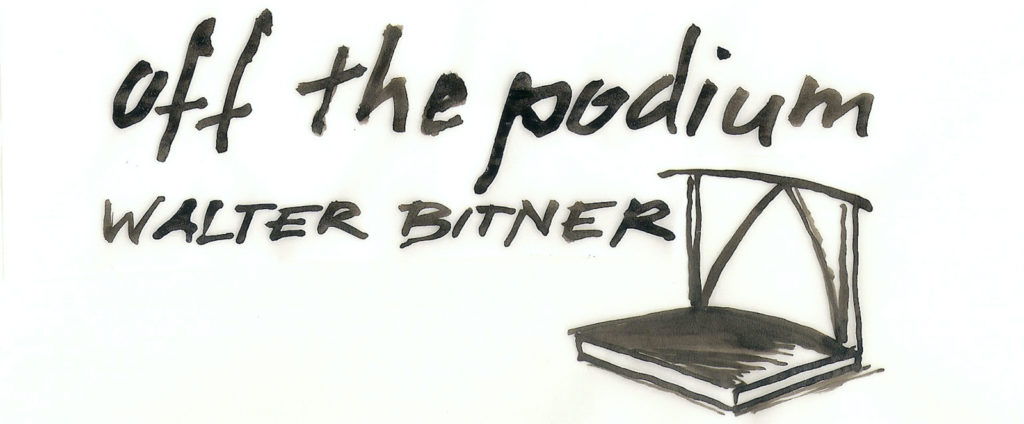

Although he is little recognized today, the English composer Sir Charles Villiers Stanford (1852 – 1924) was one of the most prominent musicians in the English-speaking world at the end of the 19th and early 20th centuries, and he had considerable influence on the work of many composers and musicians whose work is better known.
His biography reads like that of any great composer: already in his teens Stanford was writing music feverishly, and his catalog included church music, secular songs, choral works, and orchestral works before he was awarded an organ scholarship at Queens’ College, Cambridge at the age of 17. By the time he was 30 he had been appointed professor of composition and conductor of the orchestra at London’s Royal College of Music, where a Who’s Who of English musicians passed through his tutelage: Stanford’s pupils included Frank Bridge, George Butterworth, Samuel Coleridge-Taylor, Herbert Howells, Ralph Vaughan Williams, and many others.
Sir Charles held many organist, orchestral and choral conducting posts, wrote prolifically in every genre, and was highly regarded as a composer by his contemporaries: his Third “Irish” Symphony was featured at the opening concert at the Concertgebouw in Amsterdam in 1888, and Mahler chose it for performances with the New York Philharmonic in 1911. Along with his friend and colleague C. Hubert H. Parry, Stanford championed the music of Brahms and brought it to the English-speaking world: Stanford arranged for the English premieres of Brahms’ First Symphony, Neue Liebeslieder waltzes, Alto Rhapsody, and other works, and was commissioned to compose for Joachim, Brahms’ champion on the continent.
But all that was a long time ago, and Stanford’s reputation has been eclipsed by others now. It was through his exquisite miniature The Blue Bird for chamber choir and soprano soloist that I first was introduced to his music.
Blue in Blue
The Blue Bird is a setting of a poem by the English novelist and poet Mary Elizabeth Coleridge (1861 – 1907). Coleridge originally published the poem anonymously in French as L’Oiseau Bleu in 1897; when she died suddenly from appendicitis at 45, she left behind unpublished manuscripts and many poems, which were brought out posthumously under her own name in 1908. Coleridge had been a significant presence in the cultural world of Stanford’s London – her father founded the London Bach Choir and she had many prominent literary friends. Sir Charles was apparently deeply affected by her death, and set eight of her poems in choral settings. The Blue Bird was composed in 1910.
The lake lay blue below the hill.
O’er it, as I looked, there flew
Across the waters, cold and still,
A bird whose wings were palest blue.
The sky above was blue at last,
The sky beneath me blue in blue.
A moment, ere the bird had passed,
It caught his image as he flew.

Coleridge’s poem captures a single moment in two quatrains, in the manner of a Japanese haiku. There is nothing extraneous; the poem’s great beauty lies in its direct expression of natural beauty and its power to evoke a strong impression in the imagination of the reader (and for the song of course, the singers and listeners). The poet carefully identifies the subject of the poem as “I” so that as each of us reads or hears it, we see this image in our mind’s eye as if we ourselves are the witness of the event.
In Stanford’s setting, the choir’s opening chords provide a cool description of the poem’s setting: The lake lay blue below the hill, and over this, the soprano soloist flies in pianissimo with the single word blue. For a scarce four minutes, this bird flies by: the soprano’s melody swoops gracefully, rising and falling above the choir, sometimes blending with what her peers are singing, sometimes distinctly climbing high above. Blue in blue. There is no final cadence: this bird simply flies off into the distance on the fifth of a minor seventh chord, leaving the scene without resolving.
It is pure impressionism.
The Blue Bird for high school choir
I don’t remember when I first heard The Blue Bird, but its masterful expression of serenity and its potential as a vehicle for a choir with a good soprano soloist to have a deep musical experience and make a powerful impression on audience and singers alike caught my imagination. When I found myself directing just such a choir at Nashville School of the Arts about a decade ago, I hunted down a copy of the score.
I was very surprised to find that Stanford had written it in G flat Major. Six flats!
Now I don’t know about your high school choir, but most of my students learned to read music in my choir rehearsals beginning in ninth grade. Even in my most advanced ensembles, most singers only had two or three years of singing from written notation under their belts. All of my students marked their music in solfège, and we sang on syllables until notes and rhythms were mastered, at least. Six flats were a lot to navigate for my young singers and would have created obstacles easily avoided by singing in a simpler key.
So I did the obvious thing and transposed it up a half step: we learned it in G Major, then put it back down to G flat once pitches were secure and the choir didn’t need the piano to find their notes any more.
Here it is! I hope you get a chance to do this one with your group: you’ll be glad you did.
©2020 Walter Bitner
Walter Bitner is a multi-instrumentalist, singer, conductor, and teacher, and serves as Director of Education & Community Engagement for the Richmond Symphony and the Richmond Symphony School of Music in Richmond, Virginia. His column Off The Podium is featured in Choral Director magazine, and he writes about music and education on his website Off The Podium at walterbitner.com.


Leave a Reply
You must be logged in to post a comment.